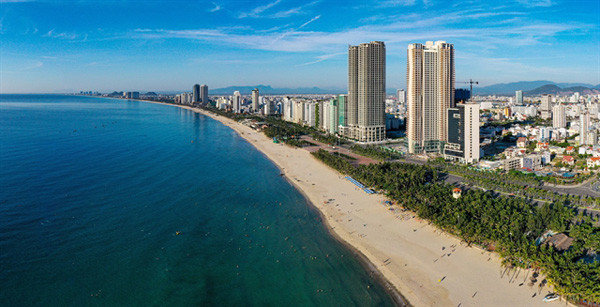
The National Assembly’s Standing Committee recently gave opinions on the draft resolution amending Resolution 119/2020 on piloting an urban administration model and policies to develop Da Nang City.
Free trade zone
Minister of Planning and Investment Nguyen Chi Dung said the policies for Da Nang aim to promote its advantages and solve the problems of the current urban model, and create a legal framework to promote the city’s potential and remove bottlenecks for socio-economic development.
The government has established a Free Trade Zone (FTZ) in Da Nang (Clause 12, Article 1 of the draft resolution) on a trial basis.
According to Dung, current laws lack regulations on the establishment and operation of FTZs. This is a popular economic model that promotes international trade and attracts FDI (foreign direct investment). Many countries and regions have succeeded with the model, including China, countries in the EU, Singapore and South Korea.
After learning about successful FTZ models and considering similar economic models in Vietnam, the government decided to set up the Da Nang FTZ in connection with the Lien Chieu Seaport with preferenial offers to attract investment.
The Da Nang FTZ is established under the Prime Minister's decision. Investment incentives, including preferential corporate income tax, land rent remission and others will be applied in the zone like in economic zones. The enterprises in the FTZ would be able to enjoy the preferential scheme in customs procedures and other policies.
National Assembly’s Finance and Budget Committee’s Chair Le Quang Manh believes that establishing the FTZ reflects strong determination and the spirit of innovation, "daring to think and daring to do".
The establishment of an FTZ on a trial basis, if successfully implemented, will stimulate socio-economic development of the city and the whole central region.
The National Assembly requested the government to check current regulations and clarify some issues, including the possible impact on economic growth, budget collection, local businesses, and neighboring localities.
The government has been asked to show more detailed assessment about the possible impact on the state budget, and the efficiency of the policy.
Also, the government needs to show the state’s capability of implementing the policy that offers incentives in customs procedures to import-export products of enterprises that have investment projects in the FTZ.
National Assembly Deputy Chair Tran Thanh Man said the policies need to remove institutional obstacles and policies hindering development of Da Nang.
Stressing that Da Nang is the main city of the central region, Man said policies must turn Da Nang into a place for travelers to spend money on entertainment and shopping, including focus on both domestic and foreign travelers. Developing services is the key task for GDP (gross domestic product) growth.
What does Da Nang need?
Dung of MPI (the Ministry of Planning and Investment) said Da Nang has always been dynamic and creative in socio-economic development, but growth has slowed down recently. If the city is allowed to apply special policies, it will bounce back.
Dung noted that Da Nang does not have much more land for development, so it needs to new policies as proposed in the draft resolution.
He said that he has learned a lot by visiting successful FTZs. The advantage for Vietnam is that, as a latecomer, it can learn lessons from failures in these countries and apply policies suitable to Vietnamese conditions.
Dung warned that if it is not established, it will be impossible to compete with other countries in attracting investment.
Thu Hang